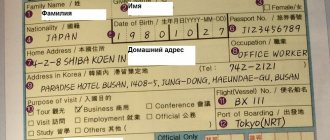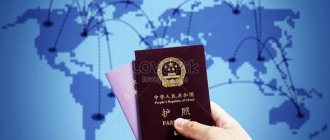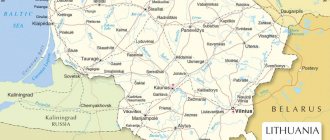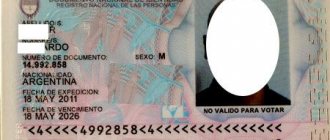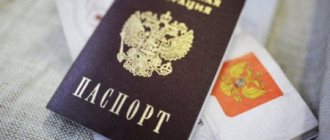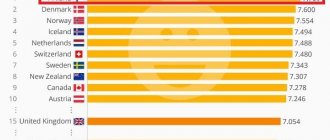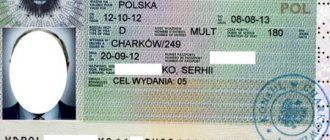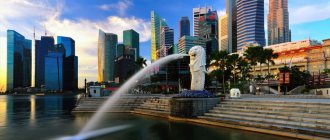The Republic of Korea is located in the northeastern part of Asia, in the south of the Korean Peninsula. This is a country with a stable economy and a prestigious labor market. It is possible to obtain South Korean citizenship - you just need to fulfill a number of requirements. Foreigners apply for the coveted passport only for immigration on the basis of marriage, naturalization, and also if the person is the head of a large Korean company. To legally obtain citizenship, it is recommended that you familiarize yourself in more detail with the rules, requirements and package of documents for relocation.
General information about the country: population and level of development
South Korea is washed by the Sea of Japan and borders the DPRK in the north. The country is distinguished by mountainous terrain. The higher the mountains, the colder the climate will be. In the south of the state, on Jeju Island, the climate is temperate subtropical, and in most of the territory it is of the monsoon subtype.
The country is home to 49 million people, 95% are Koreans. The Chinese are recognized as a large minority in the Republic of Korea. Part of the population adheres to the Christian religion, while others adhere to Buddhism. The country's economy is represented by the manufacturing industry, where the emphasis is on the production of machinery. The service sector is also well developed, tourism – marine, mountain and cultural-historical – is gaining growth rates.
Legal rules on citizenship
The Citizenship Act was issued in 1997 and is still governed by regulations and norms. There are several grounds for obtaining South Korean citizenship: by birth, by descent and through naturalization. The latter option is divided into several categories, among which are recognition and general naturalization.
Dual citizenship is not recognized in the republic. As soon as a person turns 22, he must decide which of the two citizenships to keep. It is possible to voluntarily renounce citizenship through the embassy. There are also a number of factors that regulate involuntary loss. For example, a person acquires the citizenship of his foreign spouse or parents. Divorce from a citizen of the republic is considered involuntary loss if the second person was not a local citizen, and also if the Korean person did not renounce his second citizenship within 6 months.
How to obtain Korean citizenship in 2021 and a South Korean passport for a Russian citizen
author Elena Popkova Last updated Oct 30, 2018
South Korea is a successfully developing country in East Asia, open and friendly to visitors as long as tourism is involved. When the question of citizenship arises, the country's authorities put forward strict requirements and ensure their strict implementation.
Nationality Law
South Korea's migration policy is regulated by the Nationality Law of December 13, 1997 (as amended). Significant amendments appeared in Korean legislation in 2010 on the issue of dual citizenship.
Citizenship applicants:
- Children of South Korean citizens (regardless of place of birth);
- Persons who entered into an official marriage with a Korean citizen;
- Ethnic Koreans living abroad and their descendants;
- Persons with special services to the Republic of Korea;
- Highly qualified specialists, large investors;
- Immigrants who have lived in the state for a long time, speak Korean fluently, and are integrated into South Korean society.
The law prohibits becoming a citizen:
- Persons who pose a threat to the security of the country, violators of state laws;
- Employees of a foreign army, intelligence and security services of a foreign state;
- Persons with an outstanding criminal record;
- Persons suffering from serious illnesses or mental disorders.
Ways to obtain citizenship
It is possible to acquire citizenship of South Korea in several ways, strictly observing the requirements of the law.
By birth and origin
Children receive citizenship in the following circumstances:
- Both parents are listed as citizens of the Republic of Korea at the time the child is born;
- One of the parents is a Korean citizen, with the documented consent of the second parent, a citizen of another country;
- The child's father passed away before his birth, but was a Korean subject;
- The child was born in Korea by stateless parents;
- The child was found on the territory of the state unaccompanied by parents, guardians, or official representatives.
By naturalization
Korean migration legislation provides for 2 types of naturalization:
- General naturalization applies to ordinary foreigners applying for citizenship on a general basis (the most popular method among citizens of the Russian Federation);
- Special naturalization affects persons with Korean roots and persons with special services to the state.
Voluntary adoption of citizenship in Korea requires the fulfillment of a number of conditions:
- Life expectancy in Korea is at least 5 years;
- Age - over 19 years old (age of majority according to South Korean laws);
- Financial solvency, availability of a permanent job, provision of housing;
- Reliability, law-abiding, no criminal record;
- Knowledge of the Korean language and the basic realities of life in Korea.
Circumstances that give candidates the opportunity to naturalize in Korea under an accelerated scheme - after 3 years of stay in the country:
- The father or mother of a foreign citizen held a Korean passport until the time of his death;
- The foreigner has previously voluntarily renounced Korean citizenship;
- The foreigner or his parents were born in Korea;
- A minor foreigner is adopted by a South Korean citizen.
As a result of marriage
Marriage to a Korean citizen gives the right to obtain a Korean passport under a simplified option. You can become naturalized after 3 years of married life, provided you have lived permanently in Korea for at least 1 year.
Marriage is carefully checked for fictitiousness: the family must live together and lead a common life. The birth of children removes the suspicion of migration services that family ties are fake.
Training and employment
Studying in Korean educational institutions, as well as the fact of official employment, do not provide grounds for immediate citizenship, but are a condition for obtaining a student or work visa, which allows you to legally live in Korea for a long time.
The next step towards obtaining citizenship will be to request a temporary residence permit, then permanent residence. And only after living in the country for a period sufficient by law will it be possible to begin collecting documents for naturalization.
Through doing business, investing
South Korean legislation does not provide for the possibility of acquiring citizenship by investing in the economy, but it greatly simplifies the procedure for obtaining a permanent residence permit for large investors.
Businessmen who have invested more than 500 thousand dollars in the national economy and entered into a partnership agreement with an existing Korean company apply for accelerated receipt of permanent residence. Further registration of citizenship is carried out in the usual manner.
Ethnic Korean Support Program
Former citizens of South Korea who previously left their historical homeland, as well as their descendants up to the 3rd generation inclusive, have the right to simplified acquisition of Korean citizenship. Applicants are required to document their Korean heritage and demonstrate a high level of language proficiency.
Double citizenship
In 2010, changes were made to the Citizenship Law regarding the possibility of obtaining dual citizenship for certain categories of the population.
- Outstanding personalities;
- Children from multinational families before they reach adulthood;
- Ethnic Koreans over 65 years of age who came for permanent residence.
Other Korean citizens will have to voluntarily give up their foreign passport.
Procedure for obtaining citizenship
The citizenship process in South Korea is strictly regulated. To acquire citizenship of the country, you will need to go through an orderly procedure and submit a mandatory package of documents to the Immigration Center at the place of registration.
Special requirements
An applicant for Korean citizenship must obtain the support of at least one significant citizen of the Republic of Korea and provide a letter of recommendation from him.
The following have the right to guarantee:
- Participants in Congress, Parliament, Council of Education;
- Heads of municipalities;
- Employees of the Ministry of Justice;
- Judges, lawyers;
- Persons included in the management staff of educational institutions, professors;
- Directors, press representatives;
- Doctors of narrow specialties, veterinarians;
- Officials of large corporations;
- Participants in the social integration program.
To obtain citizenship, you must pass a written exam on knowledge of the culture and traditions of the Republic of Korea (conducted in the form of testing in the Korean language) and successfully pass an oral interview, proving a conversational level of language proficiency and basic knowledge of regional information.
Required documents
To obtain Korean citizenship, Russians will have to collect a substantial list of documents:
- Application (filled out in English or Korean);
Korean visa application form
- International passport;
- Foreigner's card;
- Photo of the established sample;
- Documents on marital status;
certificate of marital status
- Documents confirming financial solvency (the applicant or his family members must have at least 60 million won in their bank account);
- Certificate of no criminal record in Korea and Russia;
- Official employment documents;
- Certificate of successful completion of the regional studies test;
- Letter of recommendation;
- Pledge of allegiance to Korea.
Documents are translated into Korean with the obligatory indication of the translator's name, originals and copies are provided.
Step-by-step instruction
Stages of the citizenship procedure:
- Collection and submission of documents to the Immigration Center;
- Testing and interview;
- Review of the application, verification of information about the candidate by the Office of Refugees and Citizenship;
- Making a decision.
Cost and terms
Consideration of the application may take from 8 to 24 months.
The cost of the naturalization procedure will be 300 thousand won. Restoring citizen status will cost the applicant 200 thousand won.
Refusal to issue citizenship
If an incomplete package of documents is submitted to the migration service, as well as if fraud, falsification of documents, or concealment of important information are detected, the issuance of citizenship will be refused.
Filing an appeal and re-applying for citizenship are not legally excluded, but rarely have a positive result.
Obtaining South Korean citizenship is not an easy procedure, the success of which depends entirely on the degree of integration into Korean society.
Migration lawyer, St. Petersburg, higher education from St. Petersburg State University, traveler
Ways to obtain citizenship
Today there are several options for foreigners to obtain citizenship on their own. These are the right of birth, family reunification, marriage, naturalization, as well as financial contributions to the country's economy and ethnic recognition of Koreans.
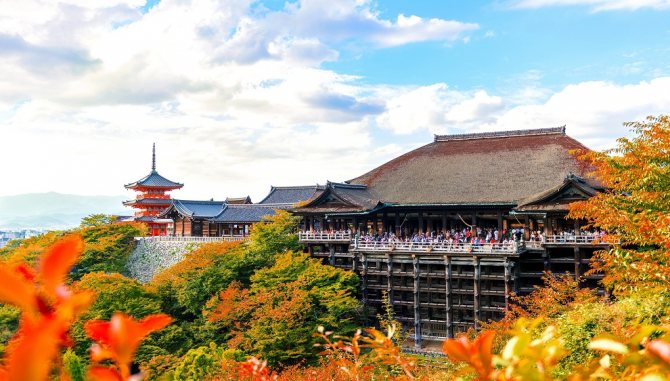
By birthright: who can apply for a passport
The Republic offers automatic citizenship by birth only in certain situations:
- When the child was born, the father or mother was a South Korean citizen;
- the child had one parent, but he died - he was a subject of the republic;
- the child was born on the territory of the state, but his parents are not subjects;
- the child was found on the territory of the republic, but it is impossible to establish his origin.
A minor receives citizenship automatically, and his parents, who are not citizens, can become citizens under a family unification program in the future.
Family reunion
The second way to go to Korea is to reunite with family. This option is suitable when close relatives live on the territory. In this case, the citizen must live in the republic for 5 years. First, an application is submitted to the migration service, where the guest is checked for his criminal record and financial ability.
The guest is issued a visa for 1 year, which can be extended for another 2 years. After this, the visitor can apply for permanent residence. If a minor child is invited, both parents must accompany him. The absence of one of them alarms the migration services; they also conduct checks: the reason for the absence of the second legal representative is being considered.
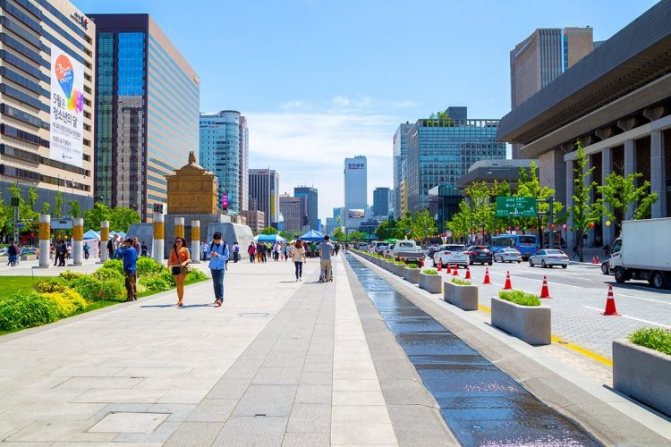
Marrying a native
The easiest option for obtaining South Korean citizenship is to formalize a relationship with a citizen of the republic. For example, as soon as a girl marries a Korean and submits a certificate for consideration, she is given permanent residence for a period of 3 years. Then the couple must provide evidence of cohabitation, and only then obtain citizenship through simplified naturalization or renew permanent residence. Only with the official registration of marriage such stages of registration are possible.
By naturalization: species
Emigration to South Korea can be carried out under the naturalization program. There are several types:
- general. The applicant must live in the republic for at least 5 years, have a registration card and the right to work. Age – at least 20 years, knowledge of the Korean language, ability to integrate into society, absence of crimes in the republic are valued;
- simplified. The period of permanent residence is reduced to 3 years, but the parent of the newcomer must have a local passport, even if he has died. If the applicant was born in the republic or has formalized a relationship, then simplified naturalization also occurs.
Special naturalization costs separately. It is intended for obtaining citizenship by children of naturalized foreigners. This also includes people with Korean or Chinese roots.
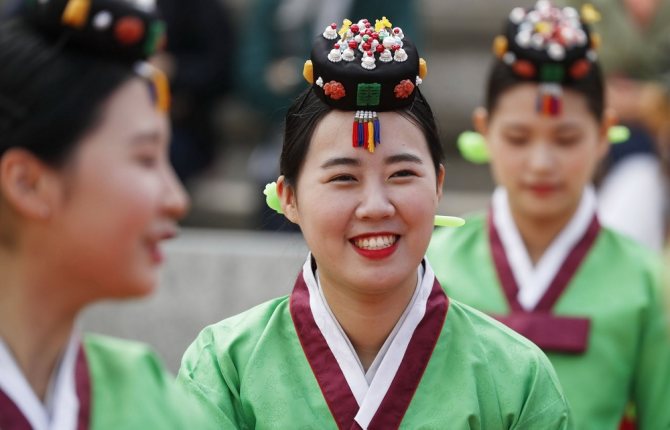
Program for Ethnic Koreans
Another way to go and live in Korea on your own is suitable for ethnic Koreans. In 2005, a special program was developed: foreigners apply for an H-4 visa, which allows them to obtain citizenship using a simplified procedure. Such people need to prove their ethnicity.
There are also a number of conditions, for example, living in the republic for 3 years. There are cases where ethnic Koreans marry local girls. Then they do not have the right to obtain citizenship through a simplified procedure under the program; they receive citizenship through simplified naturalization.
Professional Immigration – Work Visa
The state is interested in the influx of qualified personnel, so you can come here on the basis of professional migration. The candidate must enter into a contract with a local firm and the employment must comply with the law. Upon arrival, the applicant will be able to obtain a residence permit.
The employer is responsible for submitting documents: first, a residence permit is issued for 1 year, then there is the possibility of its extension. Over time, the migrant worker will be able to obtain permanent residence. This type of residence permit allows you and your family members to become citizens in the future. If a specialist occupies a high position, then permanent residence is issued immediately.

Investments in the country's economy
Investors can obtain citizenship and travel to South Korea. The law provides for the issuance of permanent residence to foreigners who contribute at least 500 thousand dollars to the republic’s economy. The document is unlimited.
Residence permits in Korea are issued to businessmen who open a company in the territory. But opening an enterprise will not be enough. The authorities must assess the seriousness of the intentions, so the foreign entity provides a business plan and proves its solvency and solvency.
Ways to emigrate
South Korea is one of the world's largest innovation centers. This fact forces many domestic and foreign entrepreneurs to develop their business in South Korea.
At the same time, the country is distinguished by very undemocratic emigration requirements. So, if a person does not have the opportunity to obtain a passport through substantial financial investments, then emigration to South Korea is possible in only two ways.
Head of the enterprise
Managers of large international enterprises have a good chance of obtaining South Korean citizenship. In this case, the foreign person undertakes to provide all necessary documents to the country's diplomatic office. A detailed list can be obtained from the South Korean Embassy.
It is important to understand that the country’s legislation is quite strict even for large investors.
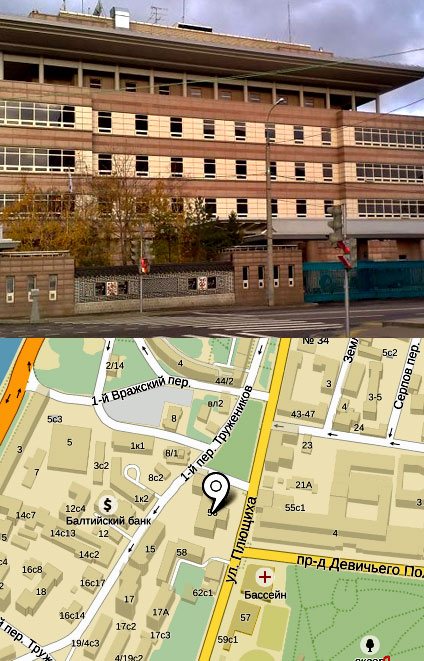
Map of the location in Moscow and the appearance of the South Korean Embassy
In order to obtain a passport, a foreign person undertakes to invest at least $500,000 in the state economy. In addition, there is another, rather sharp, pitfall.
Thus, in order to obtain a visa, a foreign person who has the opportunity to invest in the South Korean economy undertakes to enter into a partnership agreement with one of the country’s organizations. This requirement is relevant even for someone who has the opportunity to invest an astronomical amount in the South Korean economy. That is, a person who wants to emigrate on an investor visa will have to go through more than one circle of Dante’s hell.
Marriage
Obtaining a South Korean passport through marriage is much easier. True, for this, the foreigner undertakes to live in marriage with a citizen of this state for at least 3 years. There are also some concessions from the authorities.
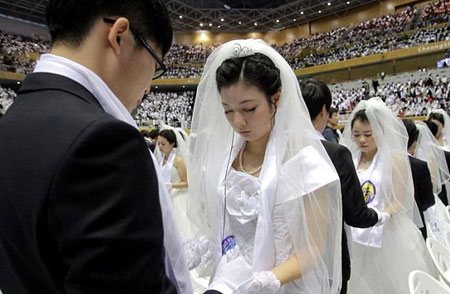
Mass wedding in South Korea
A foreigner who marries a South Korean has the right to temporary residence in the territory of this country. The permit requires regular renewal.
After three years of family life with a South Korean, a foreign person has the right to permanent residence in this state.
Procedure for obtaining citizenship
When the method of obtaining local citizenship has been chosen, it is necessary to prepare a number of documents. They are issued independently or by the employer in the case of professional emigration.
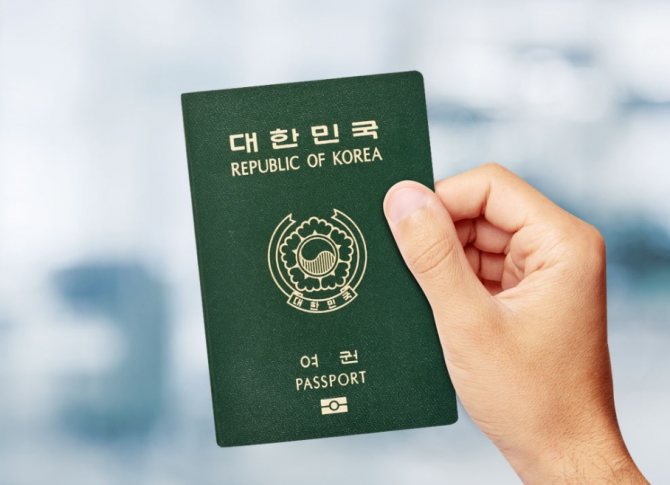
Where to apply
According to the new rules, you can officially obtain Korean citizenship only if you have permanent residence. With this status, a foreigner must live in the republic for at least 2 years. An application for citizenship is submitted to the migration center. It must be accompanied by two color photographs measuring 3.5x4.5 cm.
The official website of the Korean Migration Service contains a list of addresses of migration centers where you need to submit an application and the rest of the documents. Residents of major cities in Korea (for example, Seoul, Gwacheon, Songnam and Hanam) should contact the one-stop migration center. The application is submitted at the place of residence to the citizen affairs department.
Required package of documents
To legally carry out immigration, it is necessary to correctly collect and prepare documents:
- statement;
- original and copy of passport;
- copy of visa;
- a copy of the completed pages of the internal passport of the home country;
- an extract from your place of residence in your country listing all registered tenants. Instead of this document, you can submit an original internal passport or a notarized birth certificate;
- certificate of presence of 60 million won or more in the account;
- recommendations from a local citizen or from several citizens. These people are guarantors; they provide proof of employment as a guarantee;
- certificate of no criminal record;
- oath statement to Korea;
- payment of duty in the amount of 300,000 won;
- family information.
The immigration service may require you to indicate your marital status, presence of children, and the family record of each family member. Another important document is a certificate of knowledge of the Korean language. The official website states that all copies must be submitted with original documents.
Terms and cost of registration
The procedure scheme consists of such stages as submission of documents, their consideration, written examination and interview of the applicant, checking the correctness of filling out documents, checking for violations of laws in South Korea, making a decision, and notification. The entire review process can take up to 2 years, especially if controversial issues arise regarding the candidate. Before receiving a republic ID card, a foreigner must renounce his second citizenship.
Depending on the type of documents, the cost of processing each of them varies. For example, an application for naturalization will cost 300 thousand won - 265 dollars.
Possible reasons for refusal
Among the most common reasons for refusal is submitting false information about your person. Also, citizenship may be denied if the applicant has not fulfilled the requirement for obtaining a passport - he has not lived in the country for a certain amount of time. Insufficient funds in the account is also a valid reason for refusal. If you violate migration laws, you should be prepared to be denied citizenship - the republic takes offenders seriously. If there is reason to believe that a candidate may threaten order in the country, then in most cases a refusal notice is issued.
To avoid unpleasant misunderstandings, you need to take the collection of documents seriously. Find people in advance who will act as guarantors for the applicant. It is better to check each point of the requirements several times than to waste time again on correction and waiting for a verdict.
The procedure for obtaining citizenship of North and South Korea
Korea is a geographical area that includes the Korean Peninsula and surrounding areas. There is no single state of Korea: in 1945, the country was divided into South and North Korea, and today there are two independent states: the Republic of Korea with its capital in Seoul and the Democratic People's Republic of Korea with its capital Pyongyang.
For this reason, the conditions and procedure for obtaining citizenship in the two countries differ significantly. We will look at how to obtain Korean citizenship in the article.
Dear readers! Our articles talk about typical ways to resolve legal issues, but each case is unique.
If you want to find out how to solve your particular problem, please contact the online consultant form on the right or call +7 8
It's fast and free!
Ways to obtain citizenship
Generally, there are three general ways to obtain citizenship : by descent, by birth, and naturalization. Below are descriptions of each of these methods for North and South Korea.
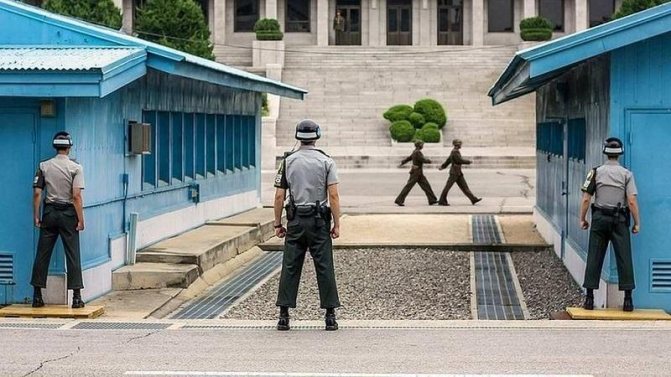
North Korea
How to obtain DPRK citizenship? The basis of Korean nationality law is a law that came into force on October 9, 1963, which provides three ways to obtain a DPRK passport :
- By right of origin. A child acquires North Korean citizenship regardless of his country of birth if he is born from parents who are citizens of the North Korean Republic. If one of the child’s parents is a citizen of the DPRK, and the other is a citizen of another country, then they have the right to choose one of two citizenships for him.
- By right of birth. If a person was born in the country and has a birth certificate, then he can submit the appropriate application to obtain North Korean citizenship.
- Naturalization. If a person has never held a North Korean passport and has no family ties to North Korean citizens, then he can apply for naturalization to the Presidium of the Supreme People's Assembly.
Attention! Dual citizenship is not recognized in the DPRK, therefore, naturalization involves renouncing your first citizenship.
South Korea
How to obtain South Korean citizenship? This is determined by the Citizenship Law of December 13, 1997, which, like DPRK legislation, includes three ways to obtain citizenship :
- By right of origin. A child becomes a South Korean citizen regardless of country of birth if he is born to parents who are South Korean citizens. If one of the parents is a citizen of another country, then the parents have the right to choose one of two citizenships for the child.
- By right of birth. A person becomes a South Korean citizen automatically if he was born in the country.
- Naturalization. If the applicant has never held a South Korean passport and does not have any family ties to Korean citizens, then he can apply for naturalization at the immigration center.
Conditions for obtaining citizenship
In the event that a person cannot apply for citizenship by right of descent or by right of birth , then he can obtain it through the naturalization procedure.
Conditions for naturalization are determined by the legislation of the state and, as a rule, include knowledge of the language, permanent residence, a stable source of income, etc.
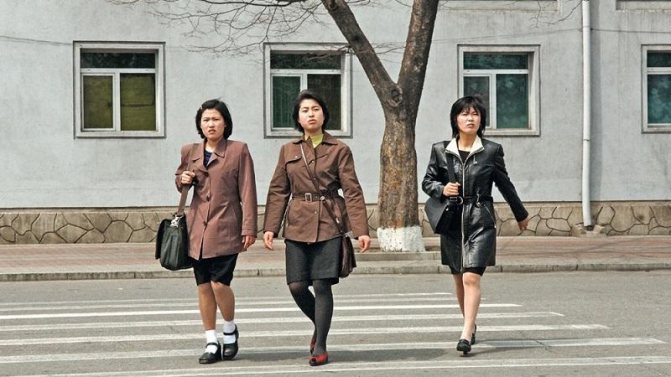
North Korea
The conditions for obtaining a DPRK passport are unknown . The country's legislation says nothing about the requirements of language proficiency, permanent residence in the country or sources of income.
To obtain a North Korean passport, you must write a corresponding application to the Presidium of the Supreme People's Assembly of the DPRK. However, the chance of receiving a positive decision is extremely small, especially for Russian citizens, since relations between Korea and Russia are currently tense (2018).
South Korea
South Korean legislation includes three types of naturalization : general, simplified and special.
General naturalization is suitable for that category of persons who do not have a South Korean passport and no South Korean roots. Conditions:
- age not less than 20 years;
- permanent residence in the country for at least five years;
- registration card;
- permanent place of residence;
- work permit;
- knowledge of the basics of the Korean language;
- solvency (at least 60 million won in bank account);
- no criminal record.
Simplified naturalization involves reducing the period of residence in the country to three years. It requires compliance with the conditions of general naturalization, as well as the mandatory presence of one of the following facts :
- be a highly qualified specialist;
- have parents who are South Korean citizens;
- be married to a South Korean citizen.
Special naturalization applies to children of persons of Korean or Chinese descent , as well as of already naturalized persons.
Procedure for obtaining citizenship
Registration of citizenship is a relatively lengthy and complex procedure , the preparation of which must be approached with great attention, especially when it comes to collecting the necessary documents and passing language tests.
North Korea
Due to the fact that the country’s legislation does not define the requirements for obtaining citizenship, the registration procedure consists only of submitting an application to the Supreme Presidium of the DPRK, without any additional documents.
For more detailed information, please contact the Embassy of the Democratic People's Republic of Korea in Moscow.
- Address: 119121, Moscow, Plyushchikha st., 56, art. 1
- Tel
- Questions about visas
- Consular issues
- Fax
- Website: overseas.mofa.go.kr/ru-ru/
South Korea
The procedure for obtaining citizenship consists of three stages:
- Obtaining a residence permit.
- Providing the necessary documents.
- Passing testing and interviews.
Next, the immigration service will check the candidate’s documents and law-abidingness , and then notify him of its decision.
To obtain a residence permit, you must contact the immigration center and apply for one of the visas that allow you to stay in the country for a long period of time. These are visas of categories D, E, H, they are issued to persons who enter the country for the purpose of obtaining education or looking for work.
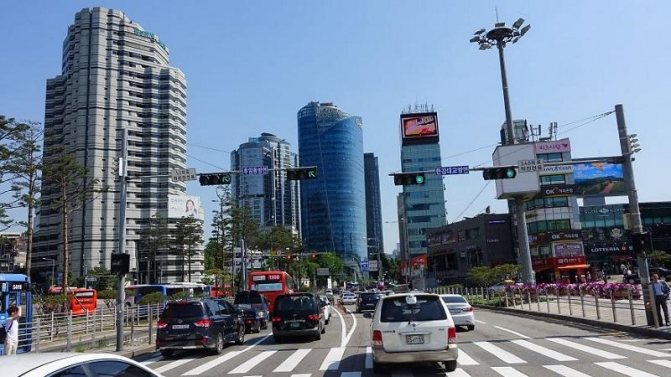
After five years of permanent residence in the country, the candidate can apply for citizenship. To do this, you must provide the following package of documents :
- international passport;
- alien registration card;
- marriage certificate (if available);
- certificate of financial position;
- color photograph (3.5x4.5);
- document confirming no criminal record (in Korea and home country);
- certificate from place of work;
- real estate registration certificate or residential lease agreement;
- Certificate of Proficiency in Korean (TOPIK);
- declaration of allegiance to Korea;
- stamps worth 300,000 won.
As an additional document, you may need a letter of recommendation from a guarantor who is a citizen of the Republic of South Korea. The following persons can act as a guarantor: a member of parliament, an authorized person of the Ministry of Justice, a judge, a doctor, a professor or a school director.
Attention! The entire package of documents must be in Korean. If the documents were translated using the services of a translator, then you must indicate his name and contact information.
Then, after submitting your documents, you will be invited to take a written test on your knowledge of South Korean culture and an interview. The interview will be conducted in Korean and may include questions about your education, career, and goals in Korea.
After completing all the described stages, you should wait for notification of the decision of the immigration service . As a rule, the period for making a decision is from one to two months.
Grounds for deprivation of citizenship
Termination of citizenship can be carried out both at the initiative of a citizen and at the initiative of the state. South Korean laws provide the following three general grounds for revocation of citizenship :
- Acquiring foreign citizenship.
- Annulment of a marriage with a South Korean citizen (if citizenship was acquired as a result of marriage).
- After six months from the date of acquisition of South Korean citizenship, the person has not renounced his first citizenship.
The grounds for deprivation of DPRK citizenship are not officially defined by the laws of the country..
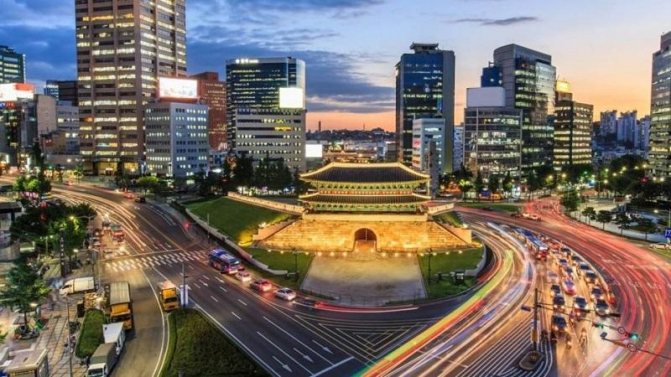
Obtaining a South Korean passport
There is no paper passport, like in Russia, in Korea. There is a registration ID card here, which is issued as an ID card. It is a plastic card indicating all the citizen’s personal data. The card contains a color photo, as well as all the personal data that is in a regular internal passport:
- Name;
- year and place of birth;
- floor;
- attitude towards military duty;
- registration
If the notice contains a positive answer, then the foreigner comes to the migration center, where he is given the appropriate documents to receive a card. Korean citizenship allows you to visit a large number of countries around the world without a visa.
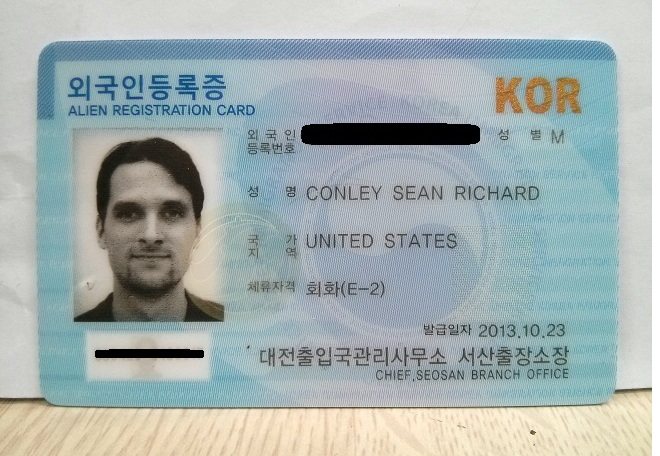
Russian Embassy in North Korea


We recommend reading: An administrative claim is filed where
The application is considered accepted for consideration from the day the applicant submits all necessary and properly executed documents with the applicant’s personal signature and date. If the applicant is unable to sign the application due to illiteracy or physical disabilities, the application, at the request of the applicant, may be signed by another person, the authenticity of whose signature must be certified by a notary record.
How to obtain citizenship for a Russian
To move to live legally in Korea from Russia, you must use the methods listed above for obtaining citizenship. At the first stage, a Russian person applies for a visa permit, then receives a residence permit, and after living on the territory of the republic for a certain number of years, he can obtain permanent residence and obtain citizenship.
Proper processing of visa permits
Russians can enter the state through obtaining proper visa permits. The most suitable type of visa is a work permit. Another option that is optimal for students is a study visa. You can study at a Korean university, then obtain citizenship through simplified naturalization. The easiest way to obtain citizenship is through the ethnicity program.
To obtain a visa permit, you need to submit an application to the embassy in Russia or the Korean migration center. It is important to choose the right visa type. For example, a work H-2 is also suitable for traveling to study. There is a visa-free agreement between Russia and South Korea for private visits, for tourists and for transit.
Obtaining a residence permit: conditions
There are several ways to obtain a long-term permit and residence permit:
- study at a university;
- work for a local company under contract;
- be ethnic Korean;
- invest in the economy;
- marry a local citizen.
If a Russian has a residence permit, then after several years of continuous residence in the republic he will be able to obtain permanent residence. To change your visa status to F-5 (permanent residence), you must submit the appropriate documents to the migration center.
Obtaining permanent resident status
After continuously living in South Korea for three years, a foreigner can apply for permanent resident status. This status must be confirmed every 10 years. The procedure is completely free.

Applying for Korean Citizenship
When all the conditions for the chosen method of obtaining citizenship are met, the Russian can submit documents to the South Korean migration center at his place of residence. The list of documents is the same for all foreigners. After submission, a certain amount of time passes while employees review the documents. Then a notification comes with a response. In 2010, a change was made to the law regulating citizenship standards: now citizens can have a second citizenship, but the privileges remain with South Korea.
Double citizenship
In 2010, changes were made to the Citizenship Law regarding the possibility of obtaining dual citizenship for certain categories of the population.
The relaxations affected:
- Outstanding personalities;
- Children from multinational families before they reach adulthood;
- Ethnic Koreans over 65 years of age who came for permanent residence.
Other Korean citizens will have to voluntarily give up their foreign passport.
While in the country, dual citizens are identified as Korean citizens, are subject to government laws, and are not entitled to the privileges of foreign citizen status.
Benefits of South Korean Citizenship
According to reviews of Russians who moved here for permanent residence, the standard of living in the republic is different. Here all citizens are equal, they are under the protection of a developing state. The main advantages of citizenship:
- the opportunity to study, work, and do business in the republic;
- the opportunity to earn a good salary based on qualifications;
- the presence of a Russian diaspora in some areas, for example, the Russian quarter in the city of Seoul will remind you of your homeland;
- if you choose a suitable program, you can study in the republic for free;
- the opportunity to travel visa-free to many countries.
Prices in South Korea cannot be called affordable, but with the right level of earnings, a person will not need anything. The only negative is the low social security for pensioners.
Obtaining South Korean citizenship gives you the right to find a decent job with a high income, as well as get to know the “land of morning freshness” better. Here the mountainous terrain is combined with the landscapes of large developed cities, which you can admire endlessly.
